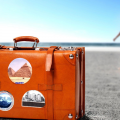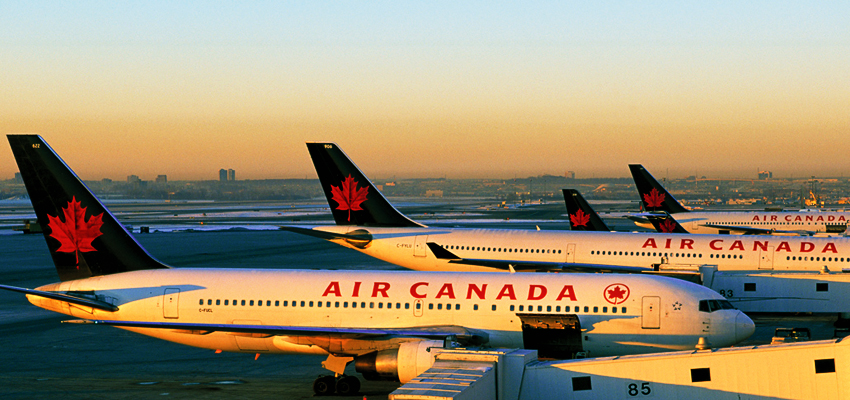Nobody likes being sick, but it’s especially important to keep your health while travelling. Being sick on the road is not only a drag for you, but it can be for your finances too. Here are 11 tips for staying healthy on the road including natural remedies, preventative measures, vaccinations, and even tips for visiting doctors abroad and getting effective travel insurance.
Dear Nora:
How do you stay healthy travelling as much as you do? What’s the trick? Any natural remedies you have learned?
– Sincerely, Paige
I’ve had my share of illnesses on the road like common colds, bronchitis, intestinal parasites, and even a brief interlude with swine flu years ago. Through these experiences, I’ve learned some techniques for staying healthy, and for the last two years or more I’ve been in tip-top shape (save for a parasite which I’ll discuss below). Here are some of my secrets and strategies:
Natural Remedies
I’m a big fan of natural remedies, especially ones that are easy (and cheap) to get your hands on just about anywhere, or that you can easily carry with you. Here are my four favourites, which will help you prevent/cure/recover from most of the illnesses that you’ll encounter while travelling.
Probiotics
Probiotics are the “good bacteria” in your gut and intestine that can fend off digestive issues. Studies have yet to confirm if they have the ability to cure or prevent stomach and intestinal illness, colon cancer, irritable bowel syndrome, and even skin infections. But nobody will refute the benefits of taking probiotics, especially if you’ve just finished a course of antibiotics which strips your system of all the good bacteria, and can then lead to further problems like diarrhea and yeast infections.
I always have probiotic supplements on hand to use after a course of antibiotics, or if I’ve suffered intestinal issues like travellers’ diarrhea. I also try to eat yogurt daily (when and where I can) to get my probiotics the natural way.
Note: many probiotic supplements have live bacteria that require refrigeration, which is impractical when travelling. Instead, look for a shelf-stable probiotic with the highest CFU (bacteria strain) count you can find.
Turmeric
Turmeric is my all-time favourite preventative and curative natural remedy. It’s a bright yellow powder spice that’s often used in curries. If you’re in a place where you can get it fresh (it looks similar to ginger), all the better. But of course, you can travel easily with the powder and you can also find it abroad in grocery stores around the world. You can also get it in capsule form if you object strongly to the flavour of the powder (which I actually quite enjoy).
Turmeric is one of nature’s strongest antibiotics and is also an anti-inflammatory, anti-oxidant and about a million other things. And unlike medical antibiotics, it’s actually good for your intestinal bacterial flora and improves digestion.
When I have access to fresh turmeric, I tend to eat it daily by adding it (raw) to my food. This keeps me healthy (and regular). If I’m feeling sick, I take it medicinally by dissolving a 1/4 teaspoon of turmeric powder in a bit of water and gulping it down twice a day. Whenever I’ve felt something coming on, within a day or two of taking turmeric this way, I’ve felt better and never actually gotten sick. And when I instructed my mother to take it after coming down with a terrible flu, she was better in two days. Her partner however, who didn’t heed my advice, continued to be sick for more than a week longer. (Just saying).
This dosage I take as outlined above is more intuitive than scientific. I found some recipes online for turmeric tea which might be a bit more palatable if chugging turmeric-flavoured-water isn’t your thing, and here is a recipe for a turmeric/honey mixture that you can use when you feel sick.
Oil of Oregano
Although oil of oregano is derived from oregano (the herb and cooking spice), unfortunately just eating spaghetti sauce won’t fend off the flu. You need to get medicinal-strength oil of oregano, which comes in tincture form or in capsule form (which I recommend if you’re kitschy about drinking water with a strong peppery tincture).
Oil of oregano is a great immune-booster and natural antibiotic/anti-bacterial/infection fighter. Prior to my love affair with turmeric, oil of oregano was my default natural remedy, and I still take it when I feel ill. As soon as I feel something coming on, I get on the oil of oregano and I’m usually feeling much better before I feel worse.
Water
Don’t underestimate the healing powers of water! Water flushes your system of pollutants and bacteria that can make you sick, or if you’re already sick, make you even sicker (or impede your recovery). It’s especially important to drink a lot of water if you’re suffering from diarrhea, which dramatically dehydrates you.
And there really isn’t a proper substitute for water; anything else (iced tea, soda, etc) has ingredients that affect water’s powers of hydration, and the body treats it differently.
Prevention
An ounce of prevention is worth a pound of cure, they say. When we travel our immune systems are often overtaxed with different stimuli, foreign substances, and oftentimes not enough sleep (which compounds the problem). So it’s important to be extra careful, and to listen to our bodies. These rudimentary preventative measures can fend off many illnesses:
Clean Water
The last time I got sick was from a parasite I picked up from drinking local tap water in Peru. I (foolishly) assumed my nice hotel room in Lima had potable water; it didn’t. It’s true that in some cases locals can get away with drinking their local water because they’ve developed natural antibodies through a lifetime of consumption. But travellers are extra susceptible to foreign water and need to be careful.
If you’re not sure about the quality of the water, the cheap and easy quick fix is to carry a SteriPEN, which sterilizes water with UV light and destroys 99.9% of bacteria and viruses. If I had used my SteriPEN in Lima, I wouldn’t have gotten sick. Added benefit: by using a SteriPEN instead of buying bottled water, you save significantly on plastic waste, and the SteriPEN pays for itself very quickly.
Sleep
This is a deceptively simple preventative measure to stay healthy, but when travelling, it can be a difficult one to practice. Long travel days, changes of time zone, and getting used to different sleeping environments all affect your ability to get enough quality shut-eye. Add on top of that an enthusiasm for doing as much exploring as you can, and sleep tends to move even further down the priority list.
The next time you arrive at a new destination shattered from your trip but don’t want to bother with a restorative nap, consider this: would you rather sacrifice the next two hours for a nap, or the next two weeks from being sick because your immune system was compromised from fatigue?
If your sleeping environment is a challenge, consider travelling with an eye mask and ear plugs.
Food Precautions
I’m all for street food and cheap local restaurants – it’s my favourite way to explore local cuisine. But if you’re in a country where the water is dodgy, your health could be at risk if produce isn’t properly cleaned, if ice isn’t made with filtered water, and even if the dishes aren’t properly dried. For example, think twice before eating a fresh salad in countries with non-potable water; a good rule of thumb when eating fruits and vegetables is “if you can’t peel it or boil it, don’t eat it”.
When eating on the street, choose vendors that appear to have clean carts, and long lineups (which indicate not only quality food but also a high turnover so food isn’t sitting around collecting bacteria).
And if you’re buying fresh produce from the grocery store to prepare yourself, pay close attention to cleaning it with filtered/sterilized water.
Lastly, Canadians: do you remember the eColi incident with lettuce from Walkerton? Contaminated produce doesn’t just exist in developing countries. Don’t obsess over the quality and cleanliness of your food, but don’t ignore it either.
Keep Your Hands Clean
The last step to prevention is keeping your hands clean, since they’re exposed to the highest concentration of ickies (such as through handling money) that can make you sick. Wash your hands with soap often (especially before you eat and after visiting the bathroom), and carry hand sanitizer.
Vaccinations
I’m going to come out and say it: I don’t believe in travel vaccinations. But mine is just an opinion (and possibly a biased one at that). If you’re interested in why I don’t get travel vaccinations, check out my post: Travel Vaccinations: Yes or No.
In some cases, proof of travel vaccinations (like yellow fever) are necessary to visit certain countries in parts of Africa, South America, and Asia. But some advice for long-term travellers: before you visit the nearest travel clinic in Canada and pay (at no small expense) for every shot you might possibly need, consider addressing required vaccinations for your (relatively) immediate needs, and getting further vaccinations down the road while you’re abroad and new destinations/vaccination requirements have crossed your radar. When I was in Thailand I accompanied a friend to a travel clinic that was clean and professional, and charged a fraction of what Canadian travel clinics cost.
Travel Insurance
Travel insurance won’t aid you in staying healthy on the road, but it can help your finances stay healthy in the event of an illness abroad, especially if it’s serious and thus, expensive to treat. Don’t leave home without it; for more information on what to get and how to make claims as painless as possible, check out the Ultimate Guide to Travel Insurance for Canadians.
Visiting Doctors Abroad
Although I have travel/expat insurance, I’ve designed my policy to have a high deductible (and thus low premiums) so I only use it in the event of an emergency. For regular doctor’s visits (when needed), I tend to self-insure by paying cash.
The best way to find a doctor abroad is to get a referral from a local; when I had bronchitis in the US, I was prepared for a crippling doctor’s bill, but with a referral to a local PA (physician’s assistant, who can perform all the services of a doctor for a fraction of the price), I spent less money than I have in many other countries for similar medical visits and resulting prescriptions.
When visiting a doctor abroad, if you don’t plan to claim it through your travel insurance, make sure to mention this right away, since many medical centres will charge a smaller fee for cash patients than they do for people running it through a health insurance plan.
For a rundown of various doctor’s charges and prescription fees I’ve paid around the world, check out this post.
Every traveller is different. What are your tips and tricks for staying healthy on the road?
Dear Nora, natural travel remedies, staying healthy, travel insurance










